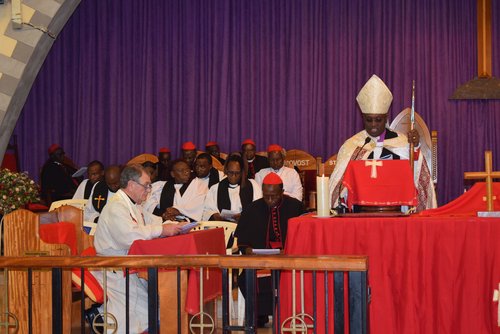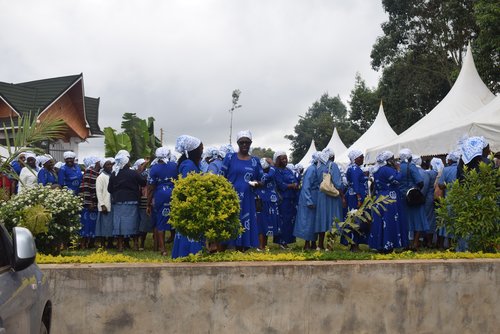Ordinations, African style
John Holdsworth witnesses – and participates in – the legacy of Victorian Welsh missionaries
In a field next to a lake, a Mothers’ Union open-air rally is taking place. 4,400 women, identically dressed in the blue MU uniform are singing and swaying in 32-degree heat, having all been fed breakfast, while the odd hippopotamus floats quietly by, intrigued it seems by this interruption to its usual routine. There are several clues here as to why this is not located in Wales.

In fact, it is in the Anglican Diocese of Thika in Kenya, twinned with Exeter, and Cyprus and the Gulf, in a three-way partnership that sees regular exchanges of various kinds, keeping the relationship fresh. I am here to lead a pre-ordination retreat for nine new priests, and to preach both at the Ordination and at the cathedral’s Easter Day service in English.

The MU is hugely influential throughout the Churches of Africa and Kenya is no exception. The field in question is next to a new facility masterminded (if one can say that) by the MU, as a place where families can enjoy recreation without alcohol. It has meeting rooms and an excellent restaurant, play facilities and green areas in an attractive setting.
The alcohol restriction is partly due to current social problems in the country, but mainly due to the heritage of the Puritan-influenced missionaries who first brought Christianity here. Some of them must have been Welsh because I am struck by the number of hymns sung to Welsh tunes with Kikuyu words. (I recognised Gwahoddiad and Deemster among others). Further evidence was provided by a readmission to communion at the service I attended on Palm Sunday. A young woman was warmly welcomed back (echoing the rejoicing in heaven over one sinner who repents) by 500 people, after giving birth to a child out of wedlock. The father did not have to undergo this process.
Thika is a relatively new Diocese formed out of bits of three others in 1998. Thika town is a relatively prosperous place, once a centre of coffee production now a centre of pineapple growing – the fields stretch for miles. It had 50 churches then. It has 205 now and new churches are being planted at the rate of three a year. Its Bishop, Julius, UK-trained in part, has vision and energy. The numbers are huge: 1600 at the Ordination and 2000 at the service on Easter Sunday – one of four that morning, and not counting children. I suppose it must have been like this in Wales once, without hippopotami.